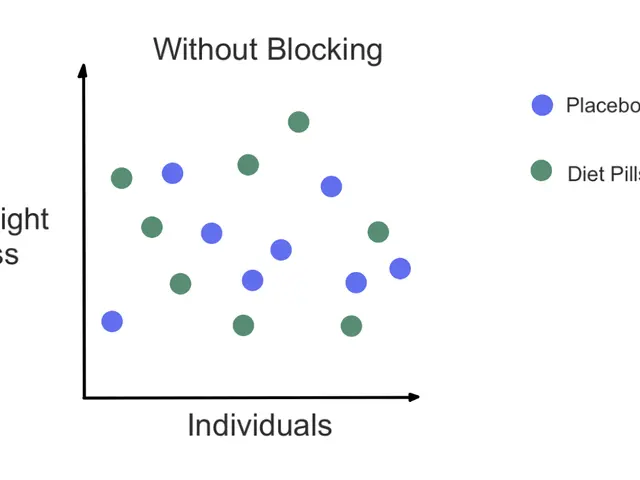Do Probiotics Aid in Weight Loss: An Investigation into Their Effectiveness
In the realm of weight management, a growing body of research suggests that probiotics could potentially play a supporting role. These beneficial microorganisms, found naturally in the gut and also available in supplements and fermented foods, have been linked to modest weight loss and improvements in metabolic health.
A significant finding is that low microbial diversity in the gut, often associated with obesity and health issues like metabolic syndrome and type 2 diabetes, can be countered by probiotics. By outcompeting harmful bacteria, maintaining a healthy balance of microorganisms, and boosting the immune system, probiotics help keep the intestinal flora balanced and promote a healthy body.
Studies have shown that probiotics can lead to small but statistically significant reductions in body weight and fat-related measures. For instance, an individual might lose about 2 pounds of fat over a period of 2–6 months, with slight improvements in BMI and waist size.
Certain strains, such as *Lactobacillus gasseri*, *Lactobacillus rhamnosus*, and *Bifidobacterium lactis*, have been identified as particularly beneficial for reducing fat mass and weight gain. Probiotics influence weight by modulating the gut microbiome, which affects digestion, metabolism, and possibly calorie absorption.
Two meta-analyses combining data from numerous randomized controlled trials found consistent, albeit modest, benefits of probiotics on weight loss. *Lactobacillus gasseri* is highlighted as a strain that can suppress dietary fat absorption, potentially aiding in weight management. Some clinical trials have also shown promise with specific probiotic strains reducing waist circumference and fat mass over several weeks of supplementation.
However, it's important to note that probiotics are not a guaranteed weight loss strategy and should be considered one part of a comprehensive weight loss program, alongside diet and exercise. The weight loss effects of probiotics may not be permanent and can potentially return once the probiotic consumption is discontinued. Furthermore, there is no evidence that one type of probiotic is more effective for weight loss than another.
While probiotics can be a useful adjunct to other weight loss strategies, they are not a standalone solution. The evidence supports their potential role in improving metabolic health and aiding in small weight reductions, but more research is needed to fully understand their long-term effects.
In conclusion, while the role of probiotics in weight loss is still evolving, it's clear that these beneficial microorganisms have the potential to contribute positively to overall health and weight management. By incorporating probiotics into a nutritious, varied diet rich in vegetables, fruits, and other whole foods, individuals can help maintain a healthy gut colony, boost their digestive and immune systems, and potentially aid in weight loss.
- The role of probiotics in weight management isn't guaranteed, but they can potentially play a supporting role in a comprehensive weight loss program that includes diet, exercise, and proper nutrition.
- Probiotics, such as Lactobacillus gasseri, Lactobacillus rhamnosus, and Bifidobacterium lactis, have been linked to modest weight loss and improvements in metabolic health, influencing weight by modulating the gut microbiome and affecting digestion, metabolism, and calorie absorption.
- A healthy balance of microorganisms in the gut, which probiotics help maintain, can counteract the low microbial diversity often associated with obesity, health issues like metabolic syndrome and type 2 diabetes, and confer benefits for overall health and wellness.
- By aiding in small but statistically significant reductions in body weight and fat-related measures, and potentially suppressing dietary fat absorption, probiotics contribute to weight management and, over a period of 2–6 months, might result in weight loss of about 2 pounds with slight improvements in BMI and waist size.
- As part of a health-and-wellness journey that emphasizes balanced nutrition, fitness-and-exercise, and proper weight-management practices, individuals can integrate probiotics into their daily routine to enhance digestive health, bolster the immune system, and potentially support weight loss.





